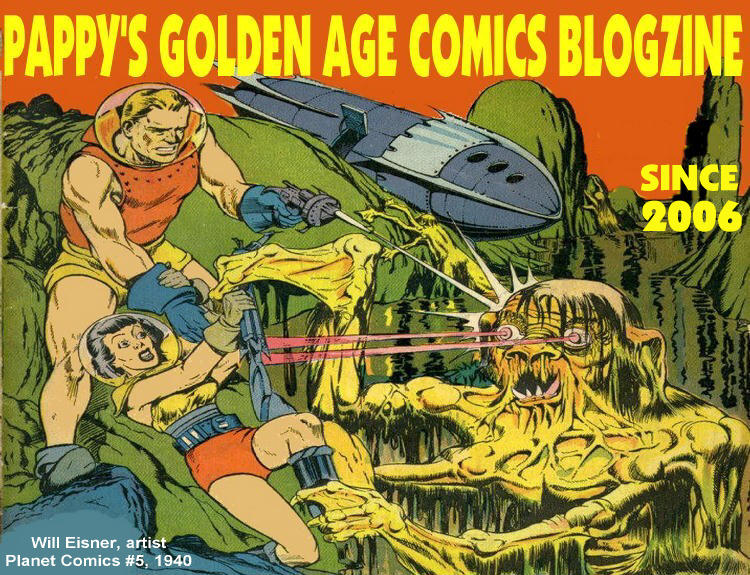This is the fourth and last posting of our Pappy's Crime Wave week. Today we travel back to the Civil War era, with two stories about William Quantrill and his guerrilla force that sacked Lawrence, Kansas, in 1863.
It was only natural that crime comics would use the Wild West as a source of stories. Comics followed trends. Western movies were very popular at the time. A lot of Western comics were published, with some thinly disguised crime comics set 100 years ago. It wasn't uncommon for different comics to draw upon the same bad men, and multiple stories were done on the most famous outlaws. All “true,” of course (see Monday's post).
Compare these two stories. “Will Quantrill, General of an Army of Murderers” is drawn by Bob Fujitani, from Crime Does Not Pay #64 (1948), and “Quantrill, the Killer’s Killer” is from Fox Publications’ Western True Crime #4 (1949), drawn by Johnny Craig. The latter story goes into some heavy moralizing: Quantrill is so evil the devil is afraid of him, so he wanders as a ghost! It probably seemed like a good idea at the time, but that kind of preachiness is over the top and didn’t fool the anti-comics people.























1 comment:
It's interesting to note that, in their misrepresentations, both of these stories chose to depict the Confederate Army in open hostility against Quantrill. While there were surely those in that army who despised his terrorism, he was tolerated for the same reasons that other terrorists have been and will be tolerated in other armies (including, of course, the Union Army). I guess that in 1948 and '49, it was thought better for sales if Quantrill were dissociated from the Confederacy.
I'd also note, en passant, that the odds in faro very much favor the dealer, to the extent that there's really no sense in his or her cheating. The reason that so often thought the dealer cheated was the same reason as they'd agreed to play in the first place — they had no sense of the probabilities.
Post a Comment